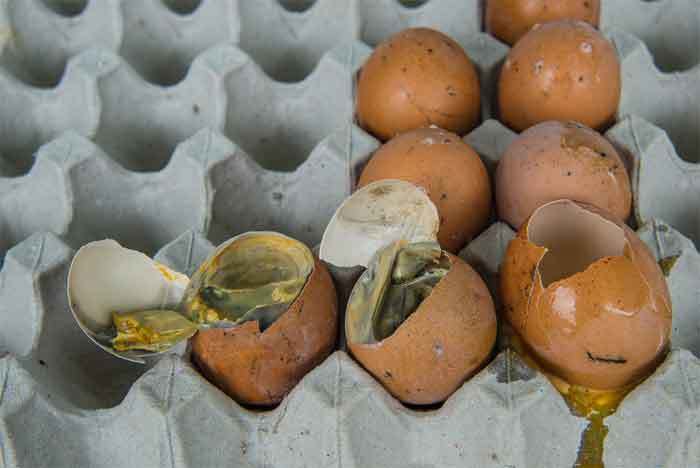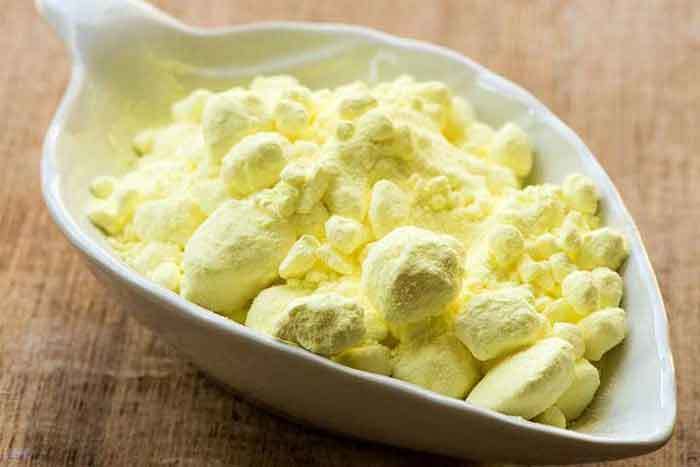Disclaimer: This post may contain affiliate links, meaning we get a small commission if you make a purchase through our links, at no cost to you. For more information, please visit our Disclaimer Page.
If you have started noticing that the water coming out of your tap has a really bad odor, similar to rotten eggs, it’s very likely that you are facing an increase of hydrogen sulfide in your water supply.
But don’t panic, this is actually a very common problem in households, especially if your water source is a well or some other still supply.
Although it’s not necessarily dangerous for your water to have this rotten smell, it does indicate that there is probably a high level of pollution and chemicals involved.
Surprisingly, in the U.S. there have been over 316 contaminants found in water reservoirs, so it’s very important to identify the source of the smell in order to ensure safe and clean drinking water.
You will be pleased to hear that this problem is usually very easy to fix on your own, and that you won’t have to call a professional and spend a lot of money on fixing it.

What Causes Water to Smell like Rotten Egg?
If your water smells like rotten eggs, the most common reason behind it is high levels of sulfur bacteria and Hydrogen Sulfide that are found in the building’s water supply.
Note that even the smallest amounts of Hydrogen Sulfide can cause your water to have a disgusting smell. What happens in most cases is that the sulfur bacteria builds-up in the water heater, thereby causing the smell.
Sulfur bacteria dwell in environments lacking in oxygen such as deep wells or plumbing systems, later feeding on decaying organic matter and creating hydrogen sulfide gas that gets trapped in the water sources.
If the only time you experience the odor is when you use the hot tap, there is a chance that it’s occurring because of a chemical reaction inside the water heater, and that there aren’t any problems with the water supply (In this case it’s best that you call your local plumber to deal with the issue).
Problems That Come With Hydrogen Sulfide
Despite the hideous smell that it causes, hydrogen sulfide doesn’t actually negatively affect your health. But, presence of hydrogen sulfide within the water supply could lead to pipe corrosion, damaged plumbing fixtures and black stains on silverware.
The most obvious question that needs an answer is – Is the water safe to drink?
The answer is yes, consuming and bathing in this water, although very unpleasant, is completely safe health wise.
Important note: Be careful not to confuse an increase in sulfur bacteria with other contaminates that can mimic this smell and at the same time be very dangerous for your health.

How to Determine the Source of the Sulfur Smell
Before we move on to the solutions to the problem, we should reevaluate the things we previously mentioned and help you figure out where exactly the smell is coming from.
- If the only place where the smell is coming from is your hot water, then the problem is most likely only within the water heater.
- If it’s coming from both cold and hot water temperatures then the issue is in most cases with the plumbing or the ground or well water.
- Try to figure out if the odor is coming from all of the faucets in your household, or only in some particular parts or rooms of the house. If the odor is coming from isolated places, then the problem is within the drains and pipes and not the entire water supply.
If you are concerned with what is in your water, you can always purchase test kits that will help you determine the levels of hydrogen sulfide, sulfate, sulfur bacteria, and iron bacteria.
Ways to Deal with This Problem
There are a few very effective methods in dealing with this problem, we will present you with a list of those most commonly used with the highest success rate. You can do most of these things on your own, and save yourself a costly repair by calling a professional.
- Clear your pipes – Try turning on all the faucets in your home and let them run for about 10 minutes. After the 10 minutes have passed, turn them off. This is helpful in many cases since it clears out your pipes.
- Hot water only – If you believe that the smell is only present when the tap is disposing hot water, then the problem is within the water heater. Without turning off your water supply, get a hose and connect to the drain valve of your hot water heater. Get the other end of the hose outside in a place where excess water can run. After about 10 minutes of draining, get a sample. Take a cup and fill it with the water, and then try to notice if there are little particles inside of it. Finally, let the heater drain until there are no particles present.
- Disinfecting the water heater – Disinfecting the water heater is a very simple task that has been proved helpful a lot of times. All you have to do is turn the temperature of the water heater to 160 degrees and leave it be for a couple of hours. This process alone should be able to kill all of the bacteria in the water heater.
- Chlorinator – This method is very practical since it’s useful long term. This is a chlorine injector system that you should install on your wellhead for continuous injections of chlorine when the water is running. Chlorination eliminates the sulfur bacteria that causes the odor.
- Adding water filters – Installing water filters is fairly easy, and it’s another great fix for the rotten egg smell. The downside of the water filters is that they have to be changed often, so it’s only considered a temporary solution, and sometimes they might even be the ones causing the nasty smell. We recommend this one.
- All water situation – When both the treated and the untreated, and hot and cold water smell like rotten eggs, the problem is probably coming from the well system or the groundwater. First thing you should do is test the water to see the levels of hydrogen sulfide, sulfate, sulfur, and iron bacteria. In this situation it’s best that you call a plumber that specializes in this area.
- Aeration – This is another frequently used fix. Injecting oxygen will make it react with hydrogen sulfide to form an odorless, dissolved form of sulfur called sulfate. In an aeration system, compressed air can be injected into the water system, but it has to be removed from the water afterwards.
How to Improve Your Drinking Water
If you want to know how to improve the quality of your drinking water then you should take a look at one of our previous steps on dealing with the foul smell.
One of the best alternatives when drinking water straight from the tap, is using a water filter that eliminates all of the harmful contaminants.

What’s the Difference between Hydrogen Sulfide and Sulfate?
It has probably gotten your attention by now that we distinctly differ hydrogen sulfide from sulfate.
The difference between the two is the sulfate is a dissolved and naturally occurring mineral that can cause a laxative effect if the water is consumed. High levels of sulfate can easily be tested with a laboratory analysis.
Hydrogen sulfide, on the other hand, is gas and must be tested-on-site. Sulfate itself has no odor but if high levels are mixed with water that is not disinfected can cause hydrogen sulfide.
Conclusion: Water Smells like Sulfur
Having your home’s water smell like rotten eggs is a problem that you should address as soon as you notice it.
We hope that this article helped gain some new knowledge about this problem and that one of the methods that we have presented you with to deal with the problem have been of use.
